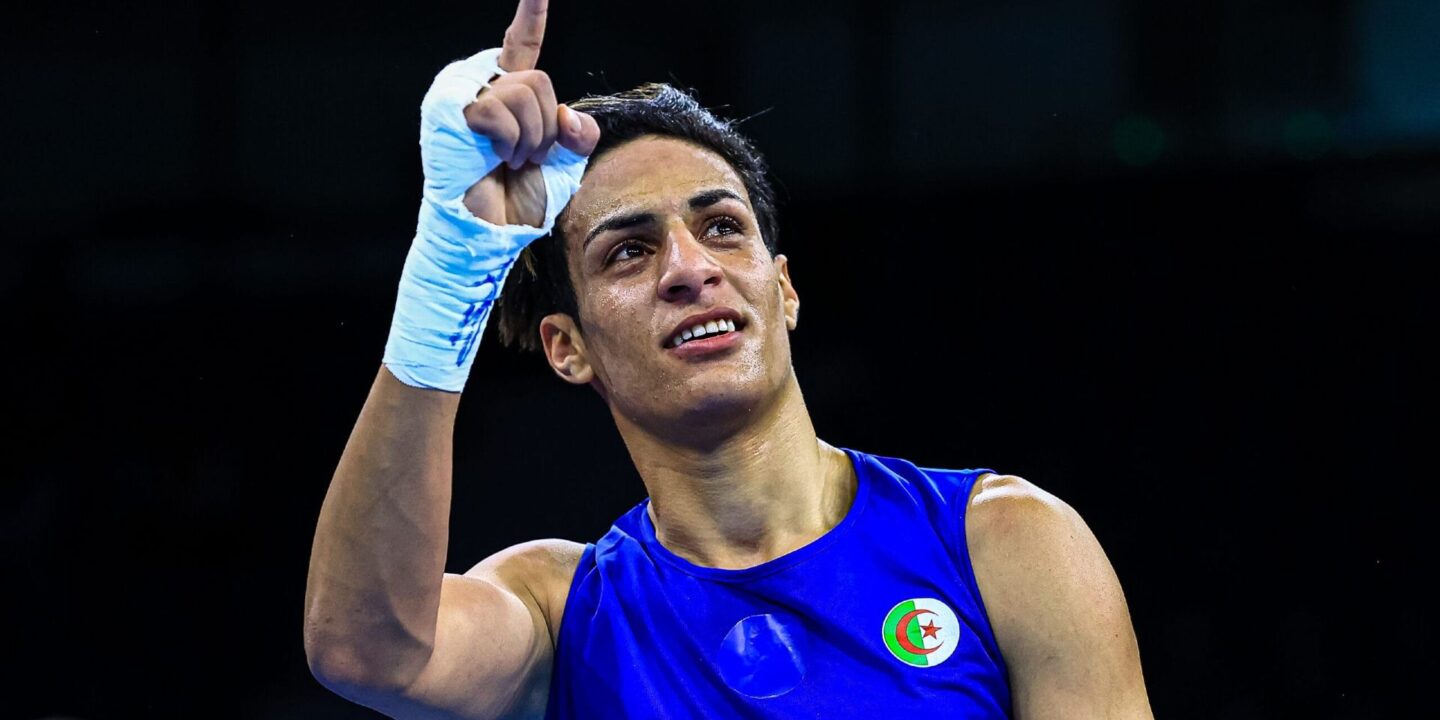
After an impressive start at the 2024 Olympics, Algerian boxer Imane Khelif has faced controversy regarding her eligibility to compete due to a testosterone-related issue.
Despite this, she has made it to the final boxing event for Algeria. When her Italian opponent forfeited, Imane received unwarranted backlash on social media, with many making hurtful comments about her appearance and gender.
However, evidence of her identity as a woman and confirmation that Algerian law does not allow gender reassignment have since been presented to counter these doubts.
READ ALSO: Who is the 2024 Olympics boxer Imane Khelif? | Notjustok
What is the normal testosterone level for a female athlete?
For female athletes, typical testosterone levels range from 0.1 to 1.8 nanomoles per liter (nmol/L). However, regulations for those with naturally high testosterone levels often mandate that they keep their levels below 5 nmol/L to compete in specific events.
Many have been left unaware that many other female athletes have been subjected to such treatment over the years which has either led to negative impacts on their health or in their careers as well.
With this in mind, here are five remarkable female athletes who have been subject to significant attention and debate regarding their testosterone levels:
Caster Semenya
Caster Semenya the South African middle-distance runner, was at the center of a major dispute over testosterone regulations in women’s sports. After her notable victory in the 800m World Championship in Berlin in 2009, she underwent invasive gender tests and scrutiny. In 2019, it was mandated that women with differences in sex development must lower their testosterone levels to compete. Semenya spoke about the negative effects of the drugs, including anxiety, depression, and sleep issues, and fought against the discrimination and violation of her human rights. In a significant victory, the European Court of Human Rights ruled in her favor in July 2023, concluding that Semenya had been discriminated against.
Dutee Chand
Dutee Chand, the Indian sprinter, was barred from competing in 2014 due to hyperandrogenism. The International Association of Athletics Federations (IAAF) ruled that her testosterone levels were too high for women’s events, endangering her athletic career.
Chand refused medical treatment to lower her testosterone levels and challenged the ban. In 2015, the Court of Arbitration for Sport (CAS) ruled in her favor, suspending the hyperandrogenism regulations and allowing her to compete again. This decision set a precedent for other athletes facing similar issues and highlighted the need for more inclusive and fair regulations in sports. After this legal victory, Chand returned to competition with renewed determination, excelling, winning medals, and setting records.
Francine Niyonsaba
Francine Niyonsaba, the Burundian 800-meter Olympics silver medalist, faced challenges due to testosterone regulations. In 2019, World Athletics introduced new regulations requiring female athletes with differences in sex development (DSD) to lower their testosterone levels to compete in events ranging from 400 meters to one mile.
This directly impacted Niyonsaba and other athletes like Caster Semenya and Margaret Wambui. She was barred from competing in the 800 meters unless she agreed to reduce her testosterone levels. Instead of accepting medical interventions, Niyonsaba decided to switch to longer-distance events and successfully qualified for the Tokyo Olympics in the 5000 meters, setting a national record for Burundi.
Margaret Wambui
Margaret Wambui, a Kenyan middle-distance runner and 2016 Rio Olympics bronze medalist in the 800 meters, was also impacted by the 2019 regulations. Faced with the choice of altering her natural physiology or being barred from her preferred events, Wambui, like her counterparts Caster Semenya and Francine Niyonsaba, chose not to undergo the mandated medical interventions.
She has been outspoken about the discrimination she feels due to these regulations, which she believes unfairly target athletes with DSD.
Annet Negesa
Annet Negesa, a Ugandan middle-distance runner, faced challenges in her career after being diagnosed with hyperandrogenism in 2012. Under pressure and following regulations at the time, Negesa underwent surgery to lower her testosterone levels, which brought severe health complications, chronic pain, loss of muscle mass, and a decline in her athletic performance.
The procedure not only ended her competitive career but also left her struggling with the physical and emotional aftermath of an irreversible decision made under the pressure to conform to gender regulations in sports.
Read the Latest Olmpics 2024 News and Updates and Get Fresh updates on X and on Facebook

Leave a Reply